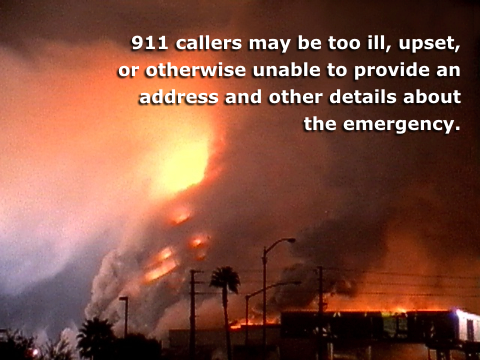Fair Practice
Office of Human Resources
Fair Practice
Coppin State University's policies, procedures, and training programs provide guidance and information for the purpose of educating our campus community. The Office of Title IX Compliance (Title IX Office) supports the University's commitment to a working and learning environment free from sexual misconduct and gender-based discrimination and administers the policies and procedures prohibiting and addressing sexual misconduct. The Office of Human Resources is responsible for ensuring that the University adheres to equal employment opportunity laws that govern workplace fairness and equality. Discrimination, affirmative action practices, cultural diversity and inclusion, Americans with disabilities and reasonable accommodation. CSU promotes the prevention of sexual misconduct and unfair employment actions through resources and training. The following information is to inform our students, faculty, staff, and volunteers that the University is committed in its efforts to comply with applicable federal and state laws.
If there is a conflict between the content on this website and the policies or law, the latter will govern.
Coppin State University is committed to maintaining and strengthening a fair and respectful environment for living, working, and studying. In compliance with federal and state law and University policy, the University does not tolerate discrimination or harassment, including sexual harassment, sexual assault, sexual violence and sexual misconduct, based on gender.
Coppin State University (CSU) is committed to providing a working and learning environment free from Sexual Misconduct, including sexual and gender-based harassment, sexual violence, dating violence, domestic violence, sexual exploitation, and sexual intimidation. CSU prohibits and will not tolerate Sexual Misconduct. Sexual Misconduct is a form of sex discrimination prohibited by state and federal laws, including Title IX of the Education Amendments of 1972 as amended (“Title IX”) and Title VII of the Civil Rights Act of 1964, as amended, and also may constitute criminal activity.
Coppin State University’s Sexual Misconduct Policy
For more information please refer to:
- Procedures on Sexual Harassment and Other Sexual Misconduct
- USM’s Policy on Sexual Misconduct VI-1.60,
- USM’s Policy of Non Discrimination on the Basis of Sexual Orientation VI-1.05.
There are a number of education and prevention initiatives that are offered to the campus community on an annual basis. The list of initiatives includes, but is not limited to:
- Large group session on sexual assault definitions, reporting options, supportive measures, prevention, and resources (on and off campus) during new undergraduate orientation;
- Online training for incoming undergraduate and graduate students that covers bystander intervention as well as University policy, procedures and resources regarding sexual misconduct;
- Regular training for students serving as resident assistants (RAs);
- Collaboration with student organizations (i.e., Greek Life, Student Government Association, among others), academic departments, and administrative offices for many events, including Domestic Violence Awareness Month, Take Back the Night, the Clothesline Project, and Sexual Assault Awareness and Prevention Month;
- Comprehensive passive education programs through digital media, social media, and print media;
- Title IX Coordinator serves as guest lecturer in the classroom and provides information on sexual misconduct definitions, reporting options, resources, and grievance procedures;
- Online training for faculty, staff, and administrators, including information on requirements for "Responsible Employees" on sexual harassment, sexual violence and reporting sexual misconduct;
- Ongoing sexual violence training for faculty, staff, and administrators who serve as investigators, hearing officers, informal resolution facilitators, advisors and Title IX Coordinators within the Title IX Grievance Process (see Training Materials for more information).
A Step By Step Guide For Faculty and Staff
As a Coppin State University faculty or staff member, you may be in a unique position to assist students who have experienced sexual assault, dating and domestic violence, stalking, or other forms of sexual harassment. Students typically confide in individuals they trust. If a student discloses information to you relating some form of sexual misconduct, please use the information provided as a guide in responding to this disclosure.
What is Sexual Misconduct?
Sexual Misconduct is defined in CSU’s Policy On Sexual Misconduct as a broad term that encompasses sexual harassment, sexual assault, sexual exploitation, sexual intimidation, dating and domestic violence, and stalking. Sexual Misconduct can occur between strangers or acquaintances, including people involved in an intimate or sexual relationship. Sexual Misconduct can be committed by men or women and can occur between people of the same or different sex.
For the definition of consent and other terms related to Sexual Misconduct, please see the full Sexual Misconduct Policy located at www.coppin.edu/hr/title9.
What Is Title IX?
Title IX is a federal civil rights law that prohibits discrimination on the basis of sex in educational programs and activities operated by institutions that receive federal funding. Sexual harassment, including sexual assault and other forms of sexual misconduct, is a form of sex discrimination that schools must respond to in accordance with their obligations under Title IX.
If a student discloses sexual misconduct to you:
Step 1: Care for the student
- Ensure they are safe
- Inform them of your duty to report before they share
- Listen and avoid judgmental questions—don’t ask any questions that start with “why”
- Tell the student that you believe them
Step 2: Connect the student with resources
- Center for Counseling and Student Development
- Community Health Center
- Off campus resources
Step 3: Contact the University's Title IX Coordinator
Ms. Katsura Kurita
410-951-6543
kkurita@coppin.edu
What do I say?
Sexual Misconduct can be a difficult topic to discuss, particularly given your reporting responsibilities. Below is a suggestion for how you might respond to a student’s disclosure:
“I appreciate what you have been able to share with me. Before you tell me more, I want to let you know that I will need to contact Ms. Katsura Kurita, Coppin’s Title IX Coordinator. She is the one person on campus whose responsibility it is to know about incidents of sexual assault, and she helps support students and coordinate possible next steps.”
Coppin State University Resources and Response
Coppin State University Office of Student Affairs: (410) 951-6399
- On campus resource for students affected by sexual misconduct.
- Staff can provide support, information, and referrals to counseling services and health care professionals (on and off campus)
- Staff can support students to contact Public Safety or local law enforcement.
Please note that any relevant information disclosed during calls is shared with the Title IX Coordinator.
Sexual Misconduct On Campus: Responding To Students (printable version)
Displayed and listed below are resources for students to use for reporting a complaint of Harassment or Discrimination. This form is meant to be a pocket resource for quick reference. It can be printed by clicking here.
Coppin State University is committed to adhere to the local and federal laws in accordance with and not limited to: Title VII of the Civil Rights Act of 1964, as amended, the Pregnancy Discrimination Act, the Equal Pay Act of 1963, the Age Discrimination Act of 1967 (ADEA), Title I of the Americans with Disabilities Act of 1990 (ADA), Sections 503 and 504 of the Rehabilitation Act of 1973, the Americans with Disabilities Act of 1990, Title IX of the Education Amendments of 1972, Federal Executive Order No. 11375, and Article 49B of the Annotated Code of Maryland.
Our policy of equal employment opportunity applies to all applicants, faculty, staff, students and volunteers. In order to provide equal employment and advancement opportunities to all individuals, employment decisions at CSU are based on merit, qualifications, and abilities to perform job responsibilities effectively.
CSU's campus environment which values human diversity and respects individuals. Fostering diversity and respect for differences is a fundamental goal of higher education, ranking among the highest priorities of this institution. In this spirit, CSU is committed to a policy of equal opportunity and to the elimination of discrimination in both education and employment on the basis of race, color, national origin, ethnicity, sex, gender identity, sexual orientation, age, creed, religion, disability, political affiliation, medical condition, national origin, citizenship, veteran’s status, marital status and civil partnership, civil union status, (including unlawful discrimination on the basis of pregnancy or maternity leave), or any other protected status under applicable local, state or federal laws. This policy governs all aspects of employment, including recruitment and selection, job assignment, promotion, compensation, discipline, termination, and access to benefits and training. Please click on the links below to learn more.
- CSU's Equal Employment Opportunity (EEO) and Non-Discrimination Statement
- Discrimination in the Workplace
- Affirmative Action
- Diversity and Inclusion Statement
- Americans with Disabilities Acts of 1990, as Amended
Any applicant or employee who needs a reasonable accommodation to apply for employment or to perform the essential functions of his/her job should contact the source below and use the resource listed below:
Reasonable Accommodation Request Form
Please direct your EEO Compliance questions to: Coppin State University, Office of Human Resources or call 410.951.3666
To file a complaint of sexual misconduct or if you have questions please contact the sources listed below:
Please direct your Equal Employment Opportunity Compliance questions to: Coppin State University, Office of Human Resources, 410.951.3666
Please direct your Employee Labor Relations and Memorandums of Understanding questions to: Coppin State University, Office of Human Resources, 410.951.3666



